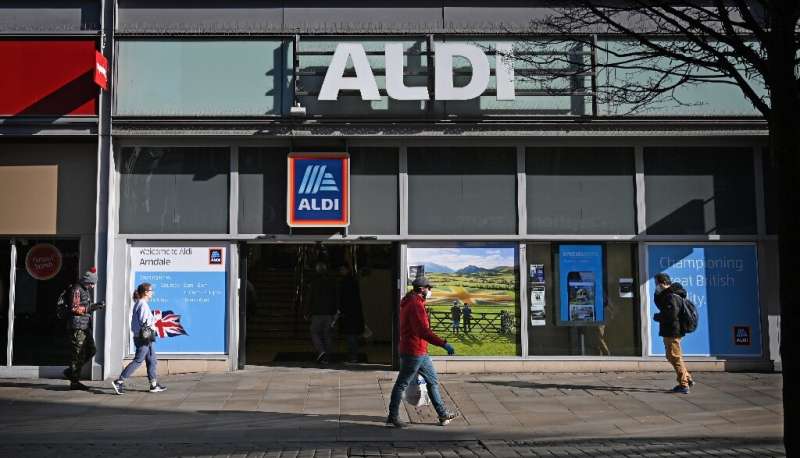Social media sees virus solidarity bloom in UK

Help groups on social media are connecting people with those most in need during the coronavirus lockdown, fostering a community spirit often neglected in the capital's fast-paced life.
Londoner Stephanie Cheung, 31, is one of those chipping in, leaving a bag of groceries on the doorstep of a stranger in her neighbourhood after getting the call on Facebook.
Wearing gloves, Cheung retreated a few yards from the front door before calling the occupant—a woman in her thirties suffering from bronchitis—on WhatsApp.
To make sure she wasn't left out of pocket, Cheung was reimbursed directly through her Paypal account.
Many more people have found themselves in similar need over recent days, having been ordered to stay home if elderly, experiencing coronavirus symptoms or suffering from serious underlying health issues.
But with more than 400 deaths now recorded, Prime Minister Boris Johnson on Monday ordered the whole country into lockdown, except for essential shops and services.
Along with more than 7,000 other people, Cheung is a member of "Hackney Covid 19 Mutual Aid", in northeast London.
Seismic shifts
Many other similar groups are flourishing on social networks, set up to help to solve problems posed by the pandemic, primarily to the elderly or frail, on the city, neighbourhood and street level,
But the phenomenon has quickly outgrown its original mission, with teachers using the networks to advise on home-schooling, while a man with a heart condition and asthma put a call out—quickly answered—for masks so he could walk his dogs safely.
A more unusual request was made to a group covering the southwest district of Lewisham, where a man asked if he could "temporarily adopt" one of his neighbours' cats to tackle a rat problem, as pest control is out of action.
The trend is not just confined to London, with WhatsApp groups popping up all over the country to manage issues on a micro level.
More than a million people in Britain have joined a Facebook local help group, including 800,000 last week, a spokeswoman for the social network said Monday.
"Over the last week there have been seismic shifts in the way we live our lives, but rather than pull us apart, it's heartening to see people across the UK rallying round to support their neighbours and communities," Brie Rogers Lowery, Facebook Europe director of community partnerships, told AFP in a statement.
"On Facebook we've seen this replicated through hundreds of new local groups, where more than one million Good Samaritans are now staying connected".
Common enemy
Cheung was moved to action on Sunday when her "heart was aching with frustration" after seeing an elderly couple struggling to get their groceries in a crowded store.
Having been previously "worried" about the crisis, she told AFP she now feels "so invigorated by the work our community is doing".
"It's undeniable that social networks are essential in this process," she added.
"What you do get with social media is this sense of something 'bigger' than you, that's just not possible to achieve on the same scale with letterbox leaflets alone".
Social networks have received sustained criticism in recent years. Now however, they are now being appreciated for their ability to spread "timely information, entertainment, and education, while enabling us to... mobilise wider collaborations," said Nick Bostrom, director of the Oxford Future of Humanity Institute.
"One theory is that we humans have a psychological need to work together in groups against a common enemy," he explained.
"Most of the time we don't have a real enemy, so we have to make one up—hence endless political feuds and all the accompanying snark on social media.
"Now we have a real enemy in common so we can come together in solidarity."
"It felt good to know that we were doing something worthy, and work as part of a team," said Kim Wilson, a member of a self-help group in West London.
Cheung hopes this community spirit will endure even after the virus has passed.
The schoolteacher said that while Facebook was "the first point of call", old-fashioned boots on the ground were still needed to help those not connected to the web.
© 2020 AFP



















